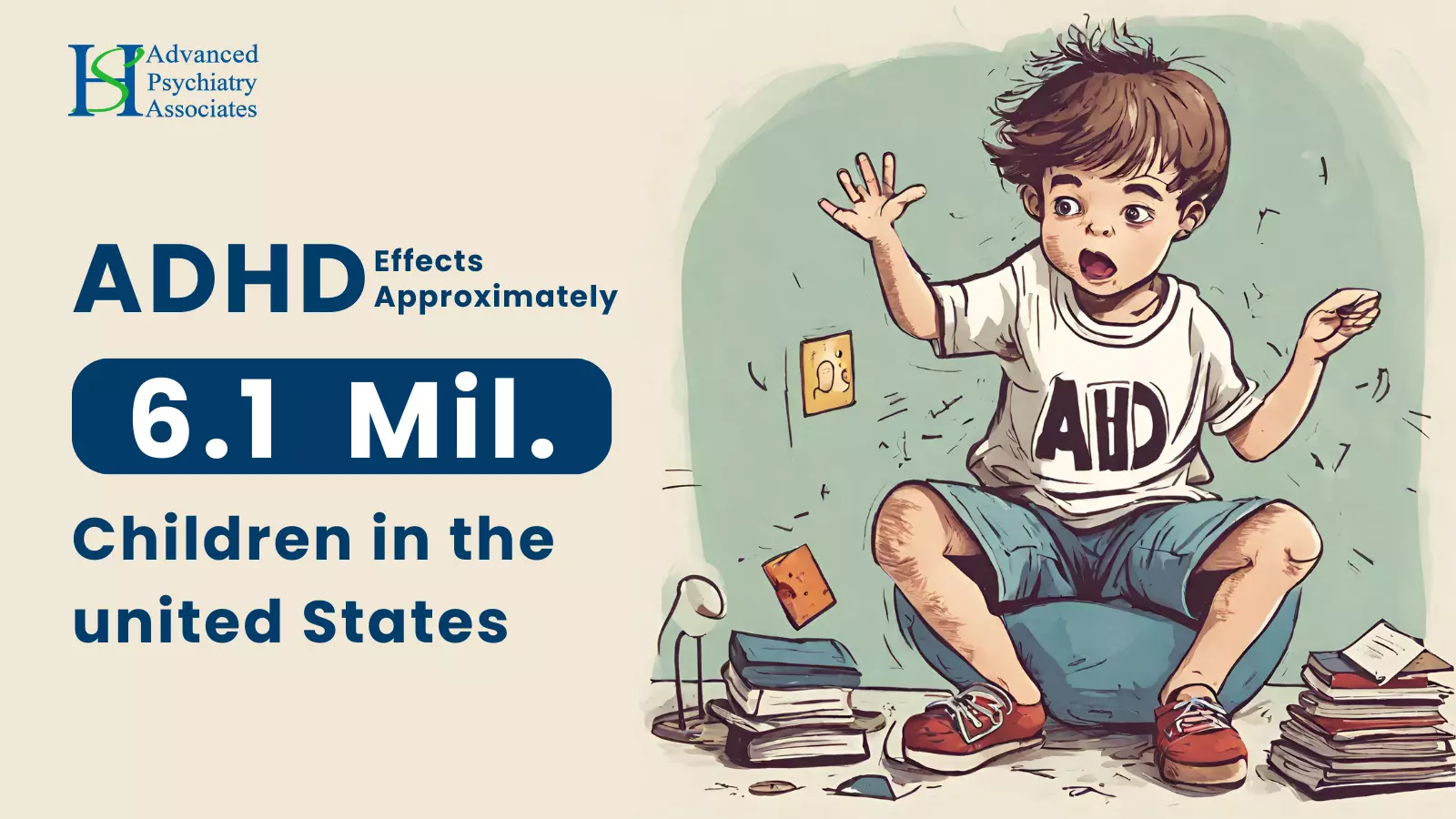Attention Deficit Hyperactivity Disorder (ADHD) is more than just a childhood condition. It affects millions of adults and children worldwide, influencing their personal, academic, and professional lives. If left unmanaged, ADHD can create significant disruptions in relationships, work, and daily routines. But with proper awareness, coping strategies, and professional help, individuals with ADHD can lead successful, fulfilling lives. In this in-depth article, we will explore the many ways ADHD affects different aspects of life, from emotional well-being to career progression, and offer actionable strategies to manage its challenges effectively.
Understanding ADHD and Its Core Symptoms
What Is ADHD?
ADHD is a neurodevelopmental disorder characterized by persistent patterns of inattention, hyperactivity, and impulsivity. These symptoms can make it difficult for individuals to focus, complete tasks, and regulate emotions, leading to significant challenges in various aspects of life. ADHD is classified into three types: predominantly inattentive presentation, predominantly hyperactive-impulsive presentation, and combined presentation, where individuals exhibit symptoms of both inattention and hyperactivity-impulsivity.
Common Symptoms of ADHD
Inattention makes it difficult to sustain focus, leading to forgetfulness and disorganization. Individuals may frequently misplace items, overlook details, and struggle with follow-through on instructions. Hyperactivity manifests as restlessness, fidgeting, and excessive talking, making it difficult to remain seated for extended periods. Impulsivity causes individuals to interrupt conversations, make hasty decisions, and struggle with self-control, often leading to challenges in social interactions and professional settings.
The Emotional and Psychological Impact of ADHD
Anxiety and Depression
ADHD often coexists with anxiety and depression. The constant struggle to focus, meet deadlines, and control impulses can lead to feelings of frustration, self-doubt, and stress. Many individuals with ADHD experience emotional dysregulation, making it difficult to process emotions effectively. This can lead to mood swings, heightened sensitivity to criticism, and an increased risk of developing mental health conditions.
Low Self-Esteem
People with ADHD frequently receive criticism for their inattentiveness or hyperactivity, leading to a decline in self-confidence. Negative feedback from teachers, parents, or colleagues can make individuals feel incapable or inferior. Over time, repeated failures in academic, social, or professional settings can erode self-esteem and contribute to feelings of inadequacy.
ADHD’s Influence on Education and Academic Performance
Challenges in the Classroom
Students with ADHD often find traditional learning environments challenging. They may struggle to sit still, complete assignments on time, or focus during lectures. This can lead to poor academic performance and frustration for both the student and educators. Additionally, difficulties with organization and memory retention can result in missed deadlines and incomplete work.
Tips for Academic Success with ADHD
Using visual aids such as diagrams and charts can enhance learning by making information more engaging. Breaking tasks into smaller, manageable parts makes it easier to stay on track and reduces feelings of overwhelm. Incorporating movement through short breaks or physical activities can help maintain focus and improve information retention. Teachers and parents can also provide structured routines, assist with time management, and encourage the use of assistive technology, such as apps that aid in organization and task tracking.
ADHD’s Effect on Professional Life and Career Growth
Workplace Challenges
Employees with ADHD may struggle with time management, organization, and task prioritization. They may find it difficult to meet deadlines, follow through on projects, or work in structured environments. Frequent distractions, difficulty staying on one task, and impulsive decision-making can impact productivity and career progression. In some cases, individuals may feel overwhelmed by job expectations, leading to job dissatisfaction and frequent career changes.
Strategies for Success at Work
Setting clear deadlines using planners or digital reminders can improve task completion and enhance accountability. Creating a distraction-free zone minimizes interruptions and enhances productivity, allowing individuals to focus on their responsibilities. Leveraging strengths such as creative thinking and problem-solving skills can be valuable assets in roles that require innovation and adaptability. Employers can support employees with ADHD by offering flexible work schedules, clear instructions, and opportunities for movement breaks.
ADHD and Relationships: How It Affects Social Interactions
Difficulties in Personal Relationships
ADHD can impact friendships, romantic relationships, and family dynamics. Impulsivity may lead to misunderstandings, while forgetfulness can frustrate loved ones. Individuals with ADHD may struggle with maintaining conversations, remembering important dates, or following through on commitments, leading to tension in relationships. Social anxiety and difficulty reading social cues may further complicate interactions.
Ways to Improve Relationships
Open communication fosters understanding between individuals, helping to build stronger connections. Establishing routines creates predictability, which helps build trust and reliability in relationships. Practicing active listening by focusing on the speaker and minimizing distractions can strengthen connections and improve communication. Couples and family therapy can also be beneficial in addressing relationship challenges and finding practical solutions.
Managing ADHD: Practical Tips and Treatment Options
Medication and Therapy
Stimulant medications such as Adderall and Ritalin help improve focus and impulse control by enhancing neurotransmitter activity in the brain. Non-stimulant medications may also be prescribed for individuals who experience adverse effects from stimulants. Behavioral therapy provides coping mechanisms for managing ADHD-related challenges and improving self-regulation. Cognitive Behavioral Therapy (CBT) helps address negative thought patterns, build self-esteem, and develop problem-solving skills.
Lifestyle Adjustments for ADHD Management
Exercising regularly boosts dopamine levels, improving focus and reducing hyperactivity. Maintaining a healthy diet that includes protein-rich foods, omega-3 fatty acids, and whole grains can enhance brain function and support cognitive performance. Establishing a sleep routine ensures proper rest, which is crucial for attention and emotional regulation. Mindfulness practices such as meditation and yoga can also help individuals develop better impulse control and reduce stress levels.
ADHD can significantly impact various aspects of life, from emotional health to career success. However, with proper strategies, medical support, and lifestyle adjustments, individuals with ADHD can thrive. By understanding the condition and taking proactive steps, those affected can harness their strengths, improve their quality of life, and achieve their full potential. Raising awareness, reducing stigma, and fostering supportive environments can make a significant difference in the lives of those with ADHD.
Contact Us Today through out our number (+18772725818 )or register now via our Patient Portal, At Advanced Psychiatry Associates, we’re here to support you on every step of your recovery journey.







